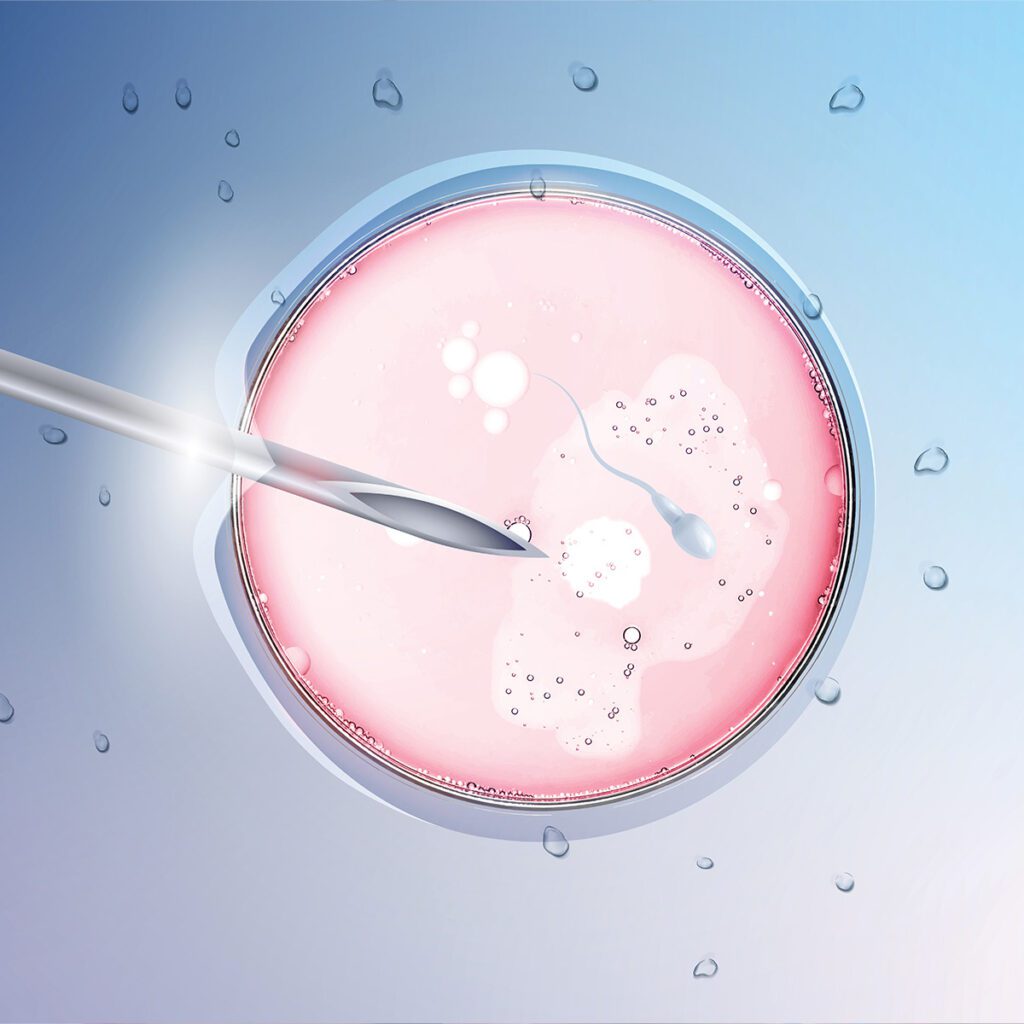This fertility treatment can help women conceive.
Understanding In Vitro Fertilization
In vitro fertilization, most commonly known as IVF, refers to a series of procedures designed to assist couples and women experiencing infertility. Fertility problems affect 9% of men and 11% of women of reproductive age in the United States and can be caused by conditions such as low sperm count, polycystic ovary syndrome (PCOS), and endometriosis. By removing and fertilizing eggs in a laboratory setting, IVF increases the chance of pregnancy.

What to Expect
- Ovulation induction. First, you will take fertility medication for around two weeks, which will help the ovaries produce multiple mature eggs that are ready for fertilization.
- Egg retrieval. These eggs are then removed from the ovaries during a minor surgical procedure.
- Insemination. In a lab, these eggs are mixed with sperm cells from a partner or donor. Fertilized eggs, or embryos, are then evaluated to determine which are most likely to result in pregnancy. These embryos are then frozen, or in some cases, prepared for transfer three to five days after retrieval.
- Embryo transfer. When the patient is ready for embryo transfer, the embryos will be thawed, if frozen, and then one or more will be placed in the uterus to develop. When an embryo implants into the lining of the uterus, pregnancy has successfully been achieved.
From initial consultation to embryo transfer, a typical IVF process can be completed within three months. If IVF is not successful on the first try, additional rounds can be completed.
Outlook
Thanks to IVF, over 10 million babies have been born around the world. This option offers one of the highest success rates of fertility treatments in the shortest period of time, and current research aims to further improve these numbers. Because every body is different and IVF success rates differ based on factors such as age and cause of infertility, consult with your doctor to determine whether IVF is right for you.
An Expert Weighs In:
“IVF is the most powerful fertility treatment we have, it gives the best chance to overcome even the most severe causes of infertility. It allows us to help prevent passing on genetic conditions that can cause suffering and shortened lifespan to a child, or miscarriage for the mother. IVF also helps women who need to delay childbearing for health or personal reasons to freeze their eggs and have children at a later time.”

Jessica Scotchie, MD
Co-Founder & Practice Director, Tennessee Reproductive Medicine
Meet the Author

Rachel Studebaker, BA, English, Summa Cum Laude
Rachel Studebaker is a graduate of Lee University where she earned a Bachelor of Arts degree in English with a minor in advertising. While attending Lee, Rachel served as editor-in-chief and creative director for the school’s biannual publication Vindagua and was a member of Sigma Tau Delta English Honors Society. Since joining CMC Publications as editor, Rachel has assumed the role of managing editor, where she is responsible for the annual development and completion of seventeen publications involving health, wellness, and lifestyles articles that are published in print and online for HealthScope, CityScope, and Choose Chattanooga magazines – premier publications serving S.E. Tennessee and North Georgia.




